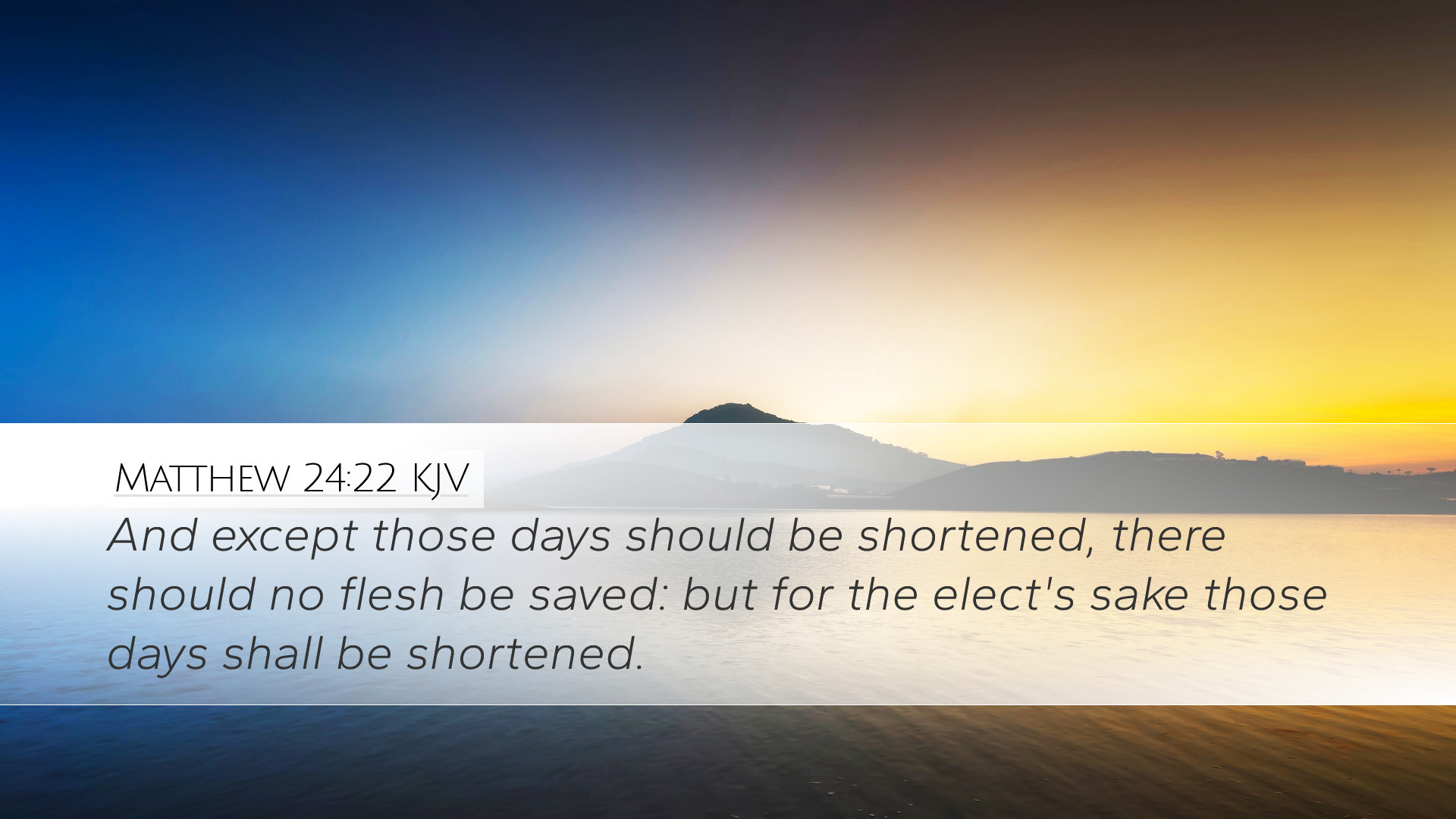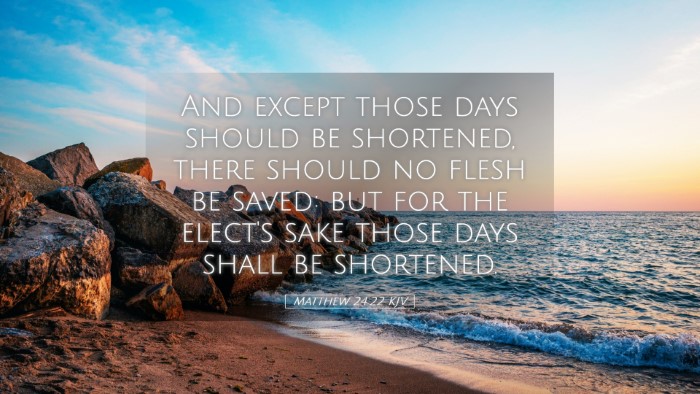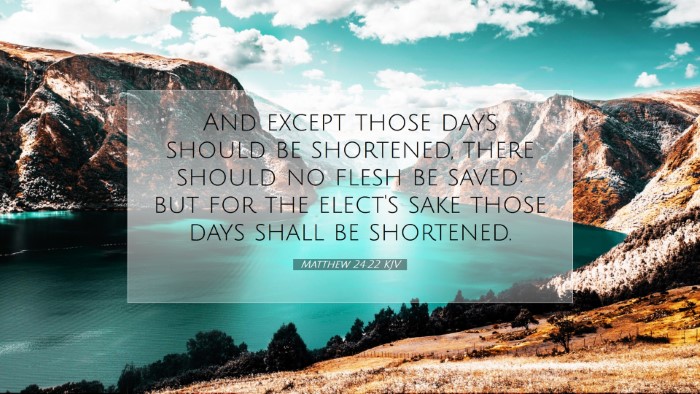Commentary on Matthew 24:22
Bible Verse: "And unless those days were shortened, no flesh would be saved; but for the elect's sake those days will be shortened." (Matthew 24:22, NKJV)
Introduction
Matthew 24 is a significant chapter often referred to as the Olivet Discourse, where Jesus speaks to His disciples about the signs of the end times and the coming tribulations. Verse 22 is a pivotal statement that encapsulates the intensity of the trials ahead and underscores God's sovereignty in preserving His people. This commentary synthesizes insights from public domain resources to provide a meaningful guide for pastors, students, theologians, and Bible scholars.
Contextual Background
Matthew 24 is situated within a discourse that begins with the disciples’ inquiries about the destruction of the temple and the signs of Christ’s return. Jesus responds with prophetic declarations of tribulation, false prophets, and the increase of lawlessness, climaxing in verse 22, which emphasizes the necessity of divine intervention for the sake of the "elect."
Understanding the "Days" and Their Shortening
As noted by Matthew Henry, the "days" referenced in this passage are those of tribulation. Henry elaborates that these days are characterized by unprecedented challenges and suffering. The shortening of these days is indicative of God's mercy, meant to safeguard those who belong to Him. Here, the implication is that God acts out of love and protection for His chosen ones.
Theological Implications of “No Flesh Would Be Saved”
Albert Barnes provides valuable insight into the phrase "no flesh would be saved." He posits that without divine intervention, the hardships and persecution inflicted during the end times would lead to utter destruction—potentially physical and spiritual annihilation. This stark warning highlights the seriousness of the tribulation and the utter dependence of mankind on divine grace to endure and survive.
The Elect
The term "the elect" signifies God's chosen people—believers who have been set apart for salvation. Adam Clarke elucidates that this group includes not only the faithful of that era but also extends through all ages of the church. Clarke emphasizes that the security of the elect during tumultuous times serves as a testament to God's fidelity to His promises. It is a profound notion that transitions convey both urgency and hope amidst despair.
Providence and Sovereignty in Times of Distress
This verse reiterates the theme of God's providence in ensuring the longevity of His elect. Henry highlights the divine governance in human affairs; God, in His sovereignty, regulates the intensity and duration of trials. The shortening of days is not merely a reduction of time but a divine strategy for the preservation of those who trust Him.
Practical Applications
For pastors and theologians, Matthew 24:22 serves as an admonition to teach congregations about the reality of suffering in the Christian experience. It emphasizes the importance of reliance on God during distressing times, reinforcing the belief that endurance and salvation are ultimately in God’s hands.
- Encouragement in Tribulations: This passage should inspire believers to find comfort and strength, knowing that their trials are under the watchful eye of a loving God.
- A Call to Perseverance: The call for the elect to endure brings forth a need for sound teaching and discipleship to prepare believers for the realities of their faith journey.
- Understanding God’s Plan: It encourages an understanding of biblical prophecy, leading believers to recognize historical and eschatological significance in contemporary events.
Conclusion
Matthew 24:22 captures a moment of profound truth about the nature of suffering, the mercy of God, and the security of His elect. Through the lenses of esteemed commentators such as Henry, Barnes, and Clarke, we glean insights that affirm God's faithfulness, providence, and ultimate authority. Encouraging believers to remain steadfast in faith amidst tribulation, this verse serves as a clarion call for vigilance and assurance in God’s redemptive plan.


